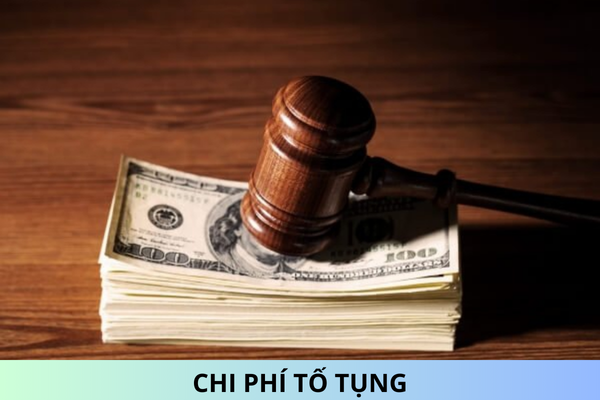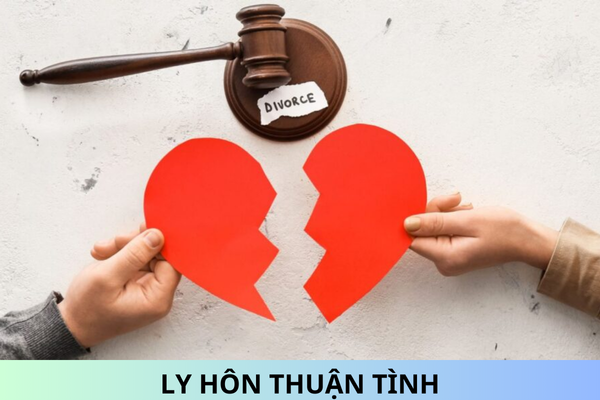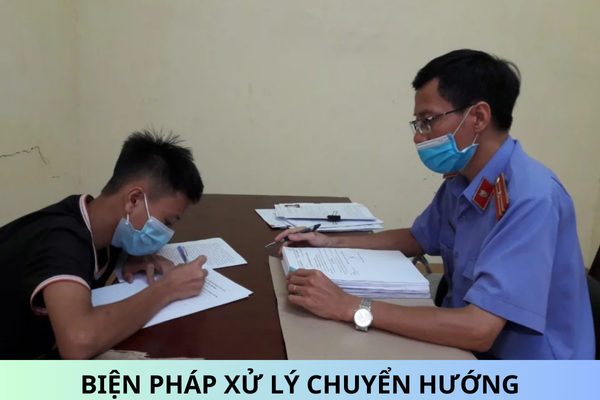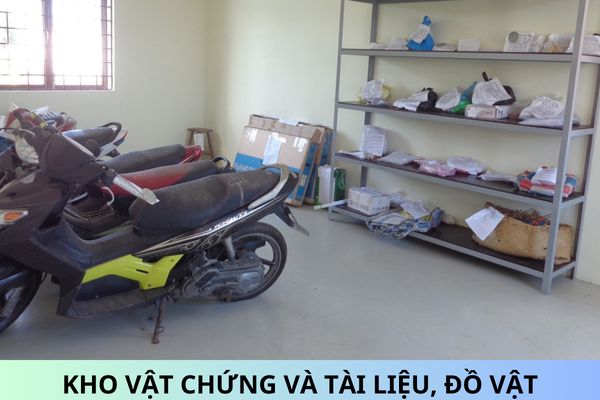What is jurisdiction in case both complaint and lawsuit petitions are filed in Vietnam?
What is jurisdiction in case both complaint and lawsuit petitions are filed in Vietnam? What are rights and obligations of plaintiffs in administrative procedures in Vietnam? What are complaints and recommendations about the return of lawsuit petitions in Vietnam?
What is jurisdiction in case both complaint and lawsuit petitions are filed in Vietnam?
What is determination of jurisdiction in case both complaint and lawsuit petitions are filed in Vietnam? Recently, I have submitted a complaint about the illegal house demolition by the commune cadastral officer. However, while waiting for the complaint to be resolved, I have filed a lawsuit about this case to the Court. So let me ask: What is determination of jurisdiction in case both complaint and lawsuit petitions are filed? And what legal document regulates this? I look forward to receiving advice from you. Sincerely thank.
Reply:
Determination of jurisdiction in case both complaint and lawsuit petitions are filed is specified in Article 33 of the Law on Administrative Procedure 2015.
1. In case a plaintiff files a petition to institute an administrative lawsuit at a competent court and concurrently files a complaint with a person competent to settle complaints, the court shall request the plaintiff to select the agency to settle the case and notify such in writing to the court.
In case the plaintiff cannot make the petition on his/her/its own, he/she/it shall request the court to make a written record of selection of the agency to settle the case. On a case-by-case basis, the court shall:
a/ Accept the case for settlement according to general procedures, and concurrently notify the case to the person competent to settle complaints and request him/her to transfer the whole dossier for complaint settlement to the court, in case the plaintiff selects the court to settle the case:
b/ Base itself on Point e, Clause 1, Article 123 of this Law to return the lawsuit petition and enclosed documents to the plaintiff, in case the plaintiff selects the person competent to settle complaints to settle the case.
Upon the expiration of the time limit for complaint settlement, if the complaint remains unsettled or have been settled but the complainant disagrees with the settlement results and files a petition to institute an administrative lawsuit at court, the court shall consider to accept the case according to general procedures.
2. In case many persons institute an administrative lawsuit at a competent court and concurrently file a complaint with a person competent to settle complaints and all of them select either of these entities to settle the case, the competence to settle the case must comply with Clause 1 of this Article.
3. In case many persons institute an administrative lawsuit at a competent court and concurrently file a complaint with a person competent to settle complaints and some of them select the court to settle the case, while others select the persons competent to settle complaints or in case some only institute an administrative lawsuit at a competent court while others only file a complaint with a person competent to settle complaints, the competence to settle the case shall be determined as follows:
a/ In case the interests and obligations of the plaintiffs and complainants are independent from one another, the settlement of the claim of the plaintiffs falls under jurisdiction of the court while the settlement of the complaint of the complainants falls under the competence of the person competent to settle complaints;
b/ In case the interests and obligations of the plaintiffs and complainants are not independent from one another, the court shall accept the case for settlement according to general procedures and notify such to the person competent to settle complaints, requesting him/her to transfer the whole dossier for complaint settlement to the court.
4. In case the plaintiff does not select an agency to settle the case, the court shall return the lawsuit petition to the plaintiff.
Above is the advice of us on determination of jurisdiction in case both complaint and lawsuit petitions are filed in Vietnam. If you want to learn more, you can refer to the provisions of the Law on Administrative Procedure 2015.

Rights and obligations of plaintiffs in administrative procedures in Vietnam
What are rights and obligations of plaintiffs in administrative procedures? I have just filed a lawsuit against the illegal land acquisition decision of the People's Committee of my commune to the Court. Currently, I have been accepted by the Court and am waiting for the first-instance trial date. So, please let me ask you: what are rights and obligations of plaintiffs in administrative procedures? And what legal document regulates this? I look forward to receiving advice from you. Sincerely thank.
Reply:
Contents of rights and obligations of plaintiffs in administrative procedures are specified in Article 56 of the Law on Administrative Procedure 2015.
Plaintiffs have the following rights and obligations;
1. The rights and obligations specified in Article 55 of this Law;
2. To change contents of their lawsuit claims within the statute of limitations for lawsuit institution; to withdraw part or the whole of their lawsuit claims.
Article 55. Rights and obligations of involved parties
When participating in procedures, involved parties have equal rights and obligations, including:
1. To respect the court and strictly observe internal rules of court hearings;
2. To pay legal cost advances, legal cost, fees and other procedural expenses prescribed by law;
3. To maintain, change, add or withdraw their claims;
4. To provide their residence or head office addresses in a sufficient and accurate manner; in the course of case settlement by the court, to promptly notify other involved parties and the court of any change in their residence or head office addresses;
5. To provide documents and evidences to prove and protect their lawful rights and interests;
6. To request agencies, organizations and individuals that are keeping or managing documents or evidences to provide such documents or evidences for furnishing them to the court;
7. To request the court to verify or collect documents and evidences of the case which they cannot verify or collect; to request the court to compel the production by other involved parties of documents or evidences which they are keeping or managing; to request the court to rule on compelling the provision by agencies, organizations or individuals that are keeping or managing evidences of such evidences; and to request the court to summon witnesses, solicit expert examination or valuation of assets;
8. To get access to, take notes and make copies of documents or evidences produced by other involved parties or collected by the court, except documents or evidences not permitted to be disclosed under Clause 2, Article 96 of this Law;
9. To submit copies of lawsuit petitions and documents or evidences to the court for sending to other involved parties or lawful representatives of other involved parties, except documents or evidences not permitted to be disclosed under Clause 2, Article 96 of this Law;
10. To request the court to rule on the application, change or cancellation of provisional urgent measures;
11. To request the court to hold sessions to check the submission of, access to, or disclosure of, evidences and dialogues, and participate in such sessions in the course of case settlement by the court;
12. To receive valid notices for exercising their rights and performing their obligations;
13. To defend their lawful rights and interests or ask lawyers or other persons to do so;
14. To request the change of procedure-conducting persons or procedure participants;
15. To participate in court hearings and session;
16. To be present in response to court summonses and abide by court rulings in the course of case settlement by the court;
17. To request the court to summon persons with related interests and obligations to participate in procedures;
18. To request the court to suspend the case settlement;
19. To give questions to other persons on matters related to the case or propose to the court matters on which questions must be given to other persons; to confront themselves with one another or with witnesses;
20. To make arguments at court hearings, present their opinions on evidence assessment and applicable laws;
21. To be provided with extracts of court judgments or rulings;
22. To appeal against or complain about court judgments or rulings;
23. To request competent persons to file protests against legally effective court judgments or rulings according to cassation or reopening procedures;
24. To strictly abide by legally effective court judgments and rulings;
25. To exercise their rights in a good will and refrain from abusing their rights to obstruct procedural activities of the court and other involved parties;
26. Other rights and obligations provided by law.
The above is the advice of us on the rights and obligations of plaintiffs in administrative procedures in Vietnam. If you want to learn more, you can refer to the provisions of the Law on Administrative Procedure 2015.
What are complaints and recommendations about the return of lawsuit petitions in Vietnam?
What are complaints and recommendations about the return of lawsuit petitions in Vietnam? ? And what legal document regulates this? I have filed a lawsuit about the decision to handle the competition case to the Court. However, after a week, the Court announced the return of the petition, citing incomplete content as prescribed. I want to complain about this. So please let me ask: What are complaints and recommendations about the return of lawsuit petitions in Vietnam? Sincerely thank.
Reply:
Complaints and recommendations about the return of lawsuit petitions are important contents specified in Article 124 of the Law on Administrative Procedure 2015.
1. Within 7 days after receiving a document on return of the lawsuit petition, the plaintiff may file a complaint while the procuracy may file a recommendation with the court that has returned the petition.
2. Right after receiving a complaint or recommendation about the return of a lawsuit petition, the chief justice shall assign a judge to consider and settle such complaint or recommendation.
3. Within 5 working days after being assigned, the judge shall hold a session to consider and settle the complaint or recommendation. This session shall be attended by representatives of the same-level procuracy and complaining involved parties. In case the plaintiff or procurator is absent, the judge shall still proceed with the session.
4. Based on documents and evidences related to the return of the lawsuit petition and opinions of the representatives of the procuracy and complaining plaintiff at the session, the judge shall decide to:
a/ Uphold the return of the lawsuit petition and notify such to the plaintiff or the same- level procuracy; or,
b/ Receive back the lawsuit petition and enclosed documents and evidences in order to accept the case.
5. Within 7 days after receiving the judge’s decision on response to the complaint or recommendation about the return of the lawsuit petition, the plaintiff may file a complaint or the procuracy may file a recommendation with the chief justice of the immediate superior court for consideration and settlement.
6. Within 10 days after receiving a complaint or recommendation about the return of a lawsuit petition, the chief justice of the immediate superior court shall decide to:
a/ Uphold the return of the lawsuit petition; or,
b/ Request the first-instance court to receive back the lawsuit petition and enclosed documents and evidences for acceptance of the case.
Complaint or recommendation settlement decisions of chief justices of immediate superior courts are final. Such a decision shall be immediately sent to the plaintiff, the same-level procuracy, the procuracy that has made the recommendation and the court that has issued the decision on return of the lawsuit petition.
Above is the advice of us on complaints and recommendations about the return of lawsuit petitions in administrative proceedings in Vietnam. If you want to learn more, you can refer to the provisions of the Law on Administrative Procedure 2015.
Best regards!










